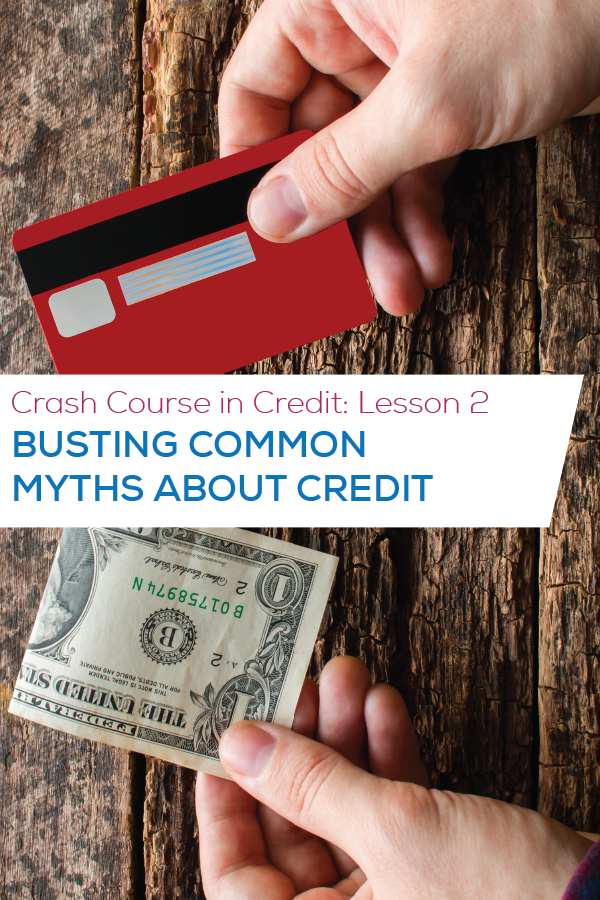Money Smarts Blog
Crash Course in Credit, Lesson 2: Common Credit Myths Busted
Jul 14, 2016 || Amanda Spurgeon

Does it ever seem like everyone you know has advice or “facts” to share with you about credit? While a lot of it might be helpful, chances are pretty good that at least some of it is false. For part two of our Crash Course in Credit, we rounded up some of the most common credit misconceptions we hear to set the record straight.
You have to have credit to get credit.
While it doesn’t make much sense in the real world to say you can’t get credit if you don’t already have it, it can be significantly harder to get if you have a short (or non-existent) credit history. Most lenders require borrowers with little or no credit to have a cosigner for any loans, like auto loans or private student loans. If you don’t want to or can’t find a cosigner, a good way to start building your own credit is a secured credit card, which allows you to make a cash deposit as collateral—a protection for the card company if you fail to make payments.
Checking your credit report damages your credit score.
Checking your credit report does not hurt your score. It’s actually recommended that you check your credit report at least once a year to ensure it doesn’t contain any errors. When you look at your own credit report, it’s called a “soft inquiry.” Soft inquiries can occur without your permission, and are only visible to you. If you’ve ever received a credit card preapproval in the mail, that creditor performed a soft inquiry on your credit. Hard inquiries, on the other hand, can only happen with your permission. Only hard inquiries affect your credit score because they’re the result of a request to extend credit, like a loan or credit card.
Carrying a balance on a credit card helps your credit score.
As long as you’re making payments on time, carrying a balance doesn’t hurt your credit score, but it doesn’t help it either. The only thing you get from carrying a balance is more interest charged. If you use a credit card, your best bet is to pay the balance on time and in full every month. The on-time payment is a positive mark on your report, and paying in full prevents you from paying any interest. It’s as simple as that.
Delinquent credit accounts fall of your report once they’re paid in full.
While it would be nice if anything potentially damaging to your score would disappear once you fixed it, that’s not the case. Credit relationships generally remain on your report for seven years. So just because you’re paid up with a lender you’d fallen behind with, it doesn’t mean other lenders won’t be able to see that you were once delinquent. The good news is that positive relationships hang around for up to ten years.
Bankruptcy is a good solution if you have too much debt.
While it might seem like a good way to get creditors to stop calling if you’re in over your head, it’s not always the best long term solution. If you file for bankruptcy, you may be relieved of paying all of your debts or just some of them. Debts owed on mortgages, student loans, taxes, alimony or child support are rarely dismissed.
Once you file, credit reporting agencies are required to list bankruptcy on your credit report for seven or 10 years, depending on whether you file chapter 7 or chapter 13. Having bankruptcy on your credit report doesn’t just make it harder to get credit in the future—it might also affect your insurance rates or your ability to get a job or apartment.
Rather than rushing to bankruptcy, you should start by working with a credit counselor, like our friends at GreenPath, who might be able to suggest better options to pay off your debt.
Struggling with your own credit conundrums? Leave us a comment, reach out to us on Facebook or talk to a Financial Services Officer. We’ll make sure you (and your credit score!) are moving in the right direction.
